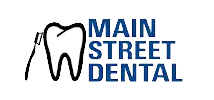Welcome to our blog post on what to expect at your next dental exam! Regular dental exams are an essential part of maintaining good oral health and preventing potential problems down the road. Whether you're a seasoned pro or it's been a while since your last visit, this article will give you all the information you need to approach your next dental appointment with confidence. So sit back, relax, and let us guide you through what happens during a dental exam and how to keep your smile shining between visits. Let's dive in!
Importance of Regular Dental Exams
Regular dental exams are more than just a quick check-up. They play a crucial role in maintaining optimal oral health and preventing potential issues from escalating into major problems. Oral health is closely linked to overall well-being, so it's essential not to neglect your teeth and gums.
During these exams, your dentist will thoroughly examine your mouth for any signs of decay, gum disease, or other concerns. They will also clean your teeth professionally, removing plaque and tartar buildup that can lead to cavities and gum inflammation.
One important aspect of regular dental exams is early detection. By catching any issues early on, such as cavities or gum disease, they can be treated before they worsen and require more complex procedures.
These examinations also provide an opportunity for education. Your dentist can offer personalized advice on proper brushing and flossing techniques tailored to your specific needs. They may suggest additional preventive measures like fluoride treatments or sealants to protect vulnerable areas of your teeth.
Regular dental exams are the foundation for long-term oral health. By scheduling these appointments every six months (or as recommended by your dentist), you're taking proactive steps toward keeping your smile bright and healthy for years to come!
What Happens During a Dental Exam?
During a dental exam, you can expect your dentist to thoroughly evaluate the overall health of your teeth and gums. The exam typically starts with a visual inspection, where the dentist will look for any signs of tooth decay, gum disease, or other oral health issues. They may also use special tools like dental mirrors or probes to get a closer look at specific areas.
Next, your dentist will likely take X-rays to get a more detailed view of what's happening beneath the surface. These X-rays can help identify cavities, bone loss, impacted teeth, and other problems that may not be visible during the visual examination.
After reviewing the X-rays and conducting their assessment, your dentist will discuss their findings with you. They'll explain any concerns they have and recommend appropriate treatments if necessary. This is also an opportunity for you to ask questions or address any oral health concerns you may have.
In addition to examining your teeth and gums, many dental exams include a thorough cleaning by a dental hygienist. This involves removing plaque and tartar buildup from your teeth using specialized tools. The hygienist may also polish your teeth and provide guidance on proper brushing and flossing techniques.
Regular dental exams are essential for maintaining good oral health as they allow dentists to catch potential issues early on before they become major problems requiring more extensive treatment. So don't skip those appointments – prioritize your smile!
How to Maintain Good Oral Health Between Exams
Maintaining good oral health between dental exams is crucial for the overall well-being of your teeth and gums. Here are some essential tips to help you keep your smile healthy and shining until your next visit:
1. Brushing: Brush your teeth at least twice a day using fluoride toothpaste. Use gentle, circular motions to clean all surfaces of your teeth, and don't forget about your tongue!
2. Flossing: Make it a habit to floss daily to remove plaque and food particles from between your teeth where the brush can't reach.
3. Mouthwash: Rinse with an antimicrobial mouthwash after brushing and flossing to kill bacteria, freshen your breath, and promote gum health.
4. Healthy Diet: Limit sugary foods and drinks as they can contribute to tooth decay. Instead, opt for a balanced diet rich in fruits, vegetables, whole grains, lean proteins, and dairy products.
5. Stay Hydrated: Drinking plenty of water throughout the day helps wash away debris from your mouth while keeping you hydrated.
6. Avoid Tobacco Products: Smoking or chewing tobacco increases the risk of oral diseases like gum disease and oral cancer. Quitting these habits will significantly improve both your dental health and overall health.
7. Protect Your Teeth: If you participate in sports or grind/clench your teeth at night, consider wearing a mouthguard or getting a custom-made nightguard from your dentist to protect against injuries or wear on tooth enamel.
8. Regular Dental Cleanings: Don't skip routine dental cleanings! Professional cleanings not only help keep tartar buildup at bay but also allow dentists to detect any potential issues early on before they become major problems.
By following these simple steps consistently, you'll be taking proactive measures towards maintaining optimal oral health between dental visits!
Remember that regular dental exams are vital for identifying any underlying issues early on when they're most treatable! So make sure not to skip or delay your next dental appointment. Call us to schedule your appointment.
More Blog Posts
Location
3195 S Main St Ste 225,
South Salt Lake, UT 84115
Office Hours
MON - FRI9:00 am - 5:00 pm
SATBy appointments only
SUNClosed






